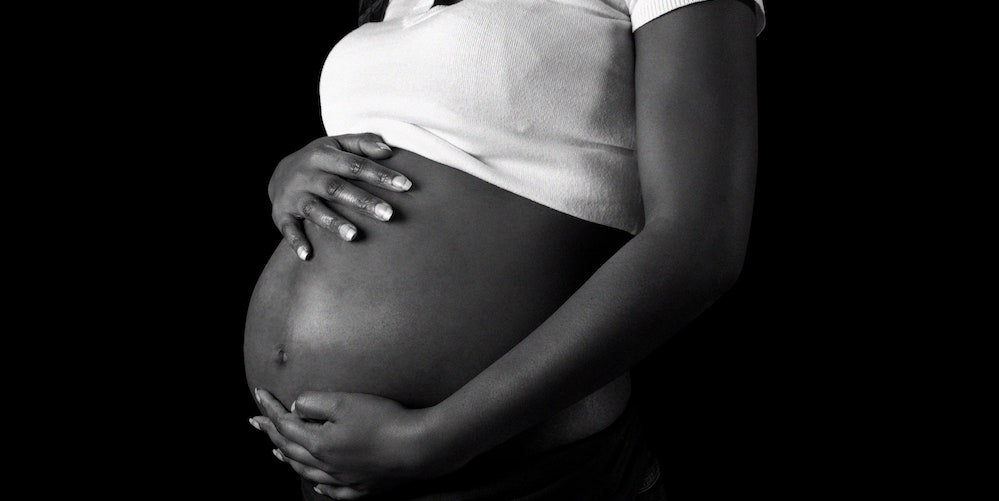BY JUDITH SIBANDA
Shelters for expecting mothers at health centres in Matabeleland North are emerging as hotspots for Covid-19 with many of them recording new infections amid fears it could lead to a higher disease burden in a province that is already struggling to provide healthcare for locals.
To cut long distances that women travel to access quality obstetric care, many rural health centres in Zimbabwe have established waiting shelters within their premises where mothers can wait so that when they go into labour or develop antenatal complications, they can be transferred to the hospital wards for management and safe delivery.
Rising poverty and the travel restrictions introduced after the outbreak of Covid-19 have made Matabeleland local maternity waiting homes – or amadumba – for pregnant women more popular, resulting in overcrowding.
Health centres in the largely rural province are far in between and the terrain is difficult to navigate for transporters.
A mini-survey by Cite in Matabeleland North districts revealed that some expecting women could have been exposed to Covid-19 while housed at the shelters as evidenced by the high number of expecting mothers testing positive.
According to a department of social welfare, the province had as many as 100 women from the shelters that tested positive for Covid-19 in July 2021.
Sithabile Mdlongwa (37) of Nkuba in Nkayi spoke about her ordeal when she suffered from Covid-19 after checking into the mothers’ shelter at Nkayi District Hospital sometime in June this year.
“It was a difficult situation for me because we were hearing about disturbing stories of people that had Covid-19 and some went on to develop symptoms while others died,” Mdlongwa said.
“I was tested for Covid-19 on arrival and the results came out negative on June 17.
“But after seven days at the emadumbeni I started feeling unwell and I was struggling to breathe.
“That’s when I was retested together with some other 11 waiting mothers and six of us came out positive for Covid-19.”
A week later, Mdlongwa went into labour and the hospital did not have facilities to handle pregnant women that tested positive for Covid-19 and those who were not infected separately.
“I still had Covid-19 and the nurses were suggesting that I should go to a private hospital in Bulawayo for treatment for delivery, but I could not afford the costs because my husband is not employed,” she said.
“On day three I started having difficulties breathing. I started feeling weak and I was coughing.
“When I was finally taken to the delivery room, I thought I was not going to make it.”
After a safe delivery, she was advised to buy baby formula for the newborn, but again it was too expensive for her.
The nurses advised her to breastfeed the baby while adhering to World Health Organisation regulations to minimise the spread of Covid-19 such as sanitising hands and wearing a mask all the time while maintaining high standards of hygiene.
Golden Mapanga, an official from the department of social welfare in Matabeleland North, refused to disclose the extent of Covid-19 infections at the shelters in the province.
“We are not authorised to give information regarding what is happening at our isolation centres,” Mapanda said.
Matabeleland North acting provincial medical director Munekayi Padingani said the outbreak of Covid-19 had complicated challenges they were facing in delivering maternity services in rural parts of the province.
Padingani said Nkayi, Binga, Tsholotsho and Lupane hospitals had challenges handling expecting mothers during the coronavirus outbreak.
“Our biggest challenge now is with waiting mothers’ centres,” Padingani told CITE.
“We are getting some high positive cases there.
“Pregnant women are getting Covid-19 and the challenges are, where do we put them?”
Padingani said most of the public hospitals in the province did not have the appropriate equipment to handle pregnant women that have Covid-19.
“We are going to separate those who are close to delivery and those who are very far from delivery,” he said.
“Those who are about to deliver and have tested positive for Covid-19, if we cannot manage them, we will send them to Bulawayo where they can be attended to if there are emergencies.
“Those who are positive and are still far from delivering, we will keep them at our centres and if they have recovered, they will deliver as normal patients without Covid-19.”
Padingani said under normal circumstances each district must have a fully equipped theatre for pregnant women only.
He said the outbreak of Covid-19 had reduced the capacity of rural health centres offering antenatal and post-natal services.
“We need to make sure that every district has a theatre for pregnant women with Covid-19 and another for Covid-19 patients,” Padingani said.
“But it is very difficult to have it right now to have an anaesthetic machine for those who have Covid-19 will take time.
“So, in case of emergencies, they shall be taken to Mpilo Hospital in Bulawayo.”
Some of the rural hospitals in Matabeleland North do not have functional ambulances to ferry patients to Bulawayo, putting the lives of expecting mothers at risk.
Fungisai Sithole from Citizen Health Watch bemoaned lack of adequate maternity facilities at rural hospitals, which she said had been made worse by the outbreak of Covid-19.
Sithole said the poor handling of pregnant women at health facilities could have long term consequences for the mother and the newly born babies.
Even before the outbreak of Covid-19, Zimbabwe was already facing one of the highest maternal mortality rates in the world.
The United Nations Population Fund estimates Zimbabwe’s maternal mortality to be at 614 deaths per 100 000 live births.

